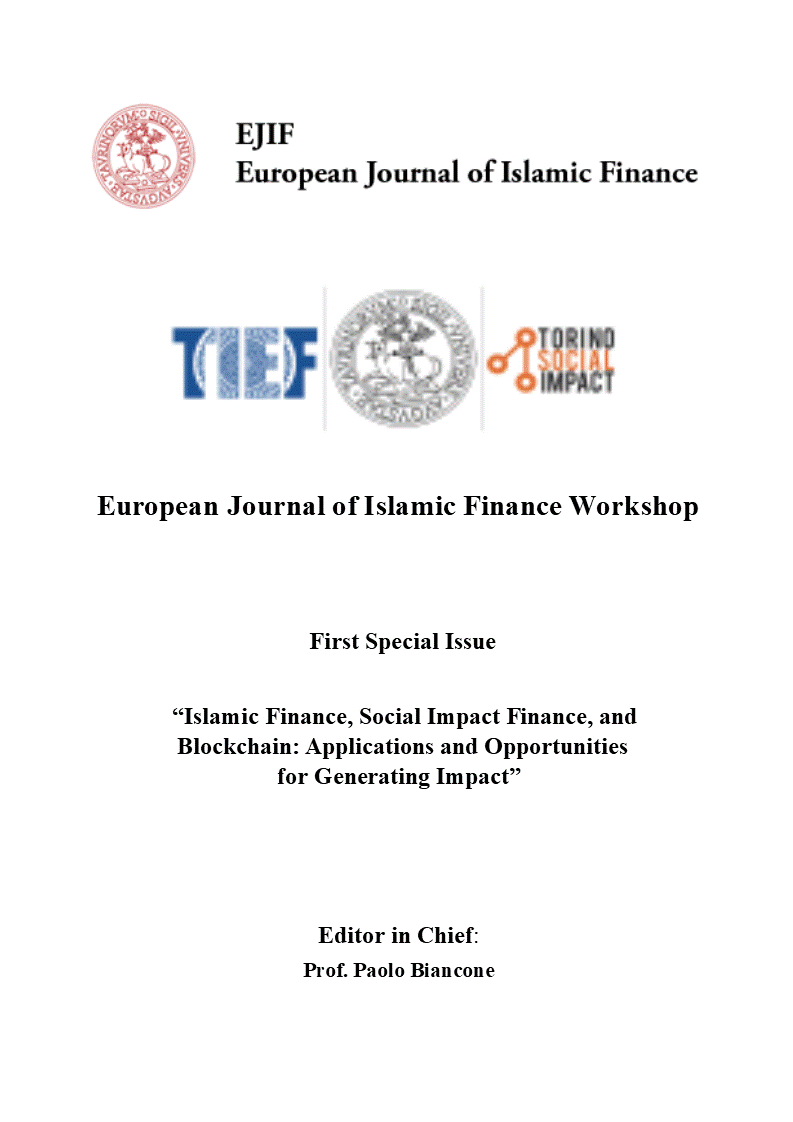A Comparative Study of CSR Practices of Islami Shariah Based PCBs and Conventional PCBs in Bangladesh
DOI:
https://doi.org/10.13135/2421-2172/3831Keywords:
Islamic Finance, Corporate Social Responsibility, Islami Shariah Based Private commercial Banks, Conventional Private commercial Banks.Abstract
CSR is an obligation of corporate entity towards society for social development. The term was coined during 1950s and mostly practiced by developed countries so far. For least developed countries like Bangladesh, the practice of CSR wasn’t so popular before 1980s, in the years of 2016, Bangladesh ranked 31st largest economy, and in 2019 it ranked as 5th fastest growing economy around the world. With such exponential growth of Bangladesh economy, the private sector is currently booming with enormous potentiality, especially the banking industry. Following the drastic change of economy, Bangladesh government has declared 10% tax rebate on CSR activities to promote social development. The banking industry of Bangladesh is mainly dominated by two types of private commercial banks (PCBs), Conventional and Islami Shariah Based banks. The objective of this study is to find out the trends and preferences for CSR investment area of each bank type. The study was conducted by using secondary source of data, which was collected over the duration of 4 years (2015-2018). Online version of annual reports, CSR reports and journal were used in this study. Quantitative analysis method was used to find out the heavily and narrowly invested CSR areas. The study reveals that the both Islami Shariah Based PCBs and conventional PCBs invest heavily on 3 common areas (Disaster management, Education and Health) and narrowly invest on areas Sports, Arts-literature & culture and Environment, this study also indicates that Islami Shariah Based PCBs have significant higher CSR expenditure than conventional PCBs on prescribed CSR areas.
References
REFERENCES
Aguinis, H. 2011. Organizational responsibility: Doing good and doing well. In S. Zedeck (Ed.), APA handbook of industrial and organizational psychology (Vol. 3): 855-879. Washington, DC: American Psychological Association.
Carroll, A. B. (1991). The pyramid of corporate social responsibility: Toward the moral management of organizational stakeholders. Business Horizons, 34, 39-48.
Islam,S.(2018, July 11). Digital Bangladesh a reality now. Dhaka Tribune. Retrieved from https://www.dhakatribune.com).
Rahman,T.(2014, April 26). Bankers urge NBR to raise tax rebate on CSR spending. Dhaka Tribune. Retrieved from https://www.dhakatribune.com ).
Hpokins, M (2007). Corporate social responsibility and international development’ is business the solution? Earthscan Publication. London. ISBN: 987-1-84407-356-6. P-15.
European Commission (2011). Communication from the commission to the European parliament, the council, the European economic and social committee and the committee of the regions. EU strategy report.P-6
Chaffee, E. C. (2017). The origins of corporate social responsibility. University of Cincinnati Law Review. PP- 85, 347–373.
Harrison, B. (1966). Philanthropy and the Victorians. Victorian Studies. P- 353–374.
Carroll, A. B. (2008). A history of corporate social responsibility: concepts and practices. In A. M. Andrew Crane, D. Matten, J. Moon, & D. Siegel (Eds.), The Oxford handbook of corporate social responsibility (pp. 19–46). New York: Oxford University Press.
Heald, M. (1970). The social responsibilities of business: company and community 1900–1960. United States of America: Pr. of Case Western Reserve Univ.
Lee, M.-D. P. (2008). A review of the theories of corporate social responsibility: Its evolutionary path and the road ahead. International Journal of Management Reviews, 10(1), 53–73.
Nasrullah .N.M, & Rahim.M.M (2014)., CSR in Private Enterprises in Developing Countries-Evidences from the Ready-Made Garments Industry in Bangladesh, Springer International Publishing Switzerland, ISBN-978-3-319-02349-6.
Rahman.M.H & Juy. J (2016), CSR practice in Bangladesh: Exploring workers participation & benefit. Bangladesh Institute of Labor Studies. ISBN: 978-084-34-1495-3. P: 23-24
Chinataman. S.A (2014), A Comparative Study of CSR Practices of Islamic Banks and Conventional Banks in GCC Region, Journal of Islamic Banking and Finance, Vol. 2, No. 1, P-6-7.
Al- Quran, Chapter 2, Surah Baqarah, verse 261.
Al-Bukhaari, 5073; Muslim, 993
IUB seminar on CSR(2012), ‘Sensitizing the Youth & Young Entrepreneurs on CSR and UN Global Compact for Sustainable Business’, Last retrieved from http://www.iub.edu.bd
Survey report (2014), CSR in Bangladesh: Current Issues and Future Trends, Dutch Embassy Benchmark Survey, Last retrieved from http://csrbangladesh.org
Theindependentbd (2 August,2017), CSR policy on the cards, Last retrieved from http://www.theindependentbd.com
Ferdous.J (2015), Corporate social responsibility practices in Bangladesh: An assessment of four state-owned commercial banks (SoCBs), International Journal of Business, Economics and Law. Vol. 8, Issue 2 (Dec.) ISSN 2289-1552, P-40
Porag R.S(2014), Corporate social responsibility in Bangladesh: practice and perpetuity. Safety and rights publishers, P-16.
Biancone, P. P., & Radwan, M. (2018). Social Finance And Unconventional Financing Alternatives: An Overview. European Journal of Islamic Finance, (10).
Biancone, P. P., & Radwan, M. (2015). Sharia Compliant “Possibility for Italian SMEs”. European Journal of Islamic Finance, (1).
Allali, A. A, (2016). Corporate Governance and Corporate Social Responsibility in Islamic Banking: The Case of the Moroccan Banks in Italy. European Journal of Islamic Finance, (1).
Downloads
Published
How to Cite
Issue
Section
License
EJIF content is licensed under a Creative Commons Attribution 4.0 International License.
Authors keep the copyrights for their work and give the journal the work's first publication copyright, which is at the same time licensed under a Creative Commons License – Attribution, which in turn allows other parties to share the work with an acknowledgement of the work's authorship and initial publication in this journal.


 EJIF has been approved for inclusion in
EJIF has been approved for inclusion in  EJIF has been approved for inclusion in
EJIF has been approved for inclusion in  EJIF is a member of
EJIF is a member of  EJIF is listed in the ANVUR (Italian National Agency for the Evaluation of Universities and Research Institutes) as a scientific journal in both
EJIF is listed in the ANVUR (Italian National Agency for the Evaluation of Universities and Research Institutes) as a scientific journal in both 
